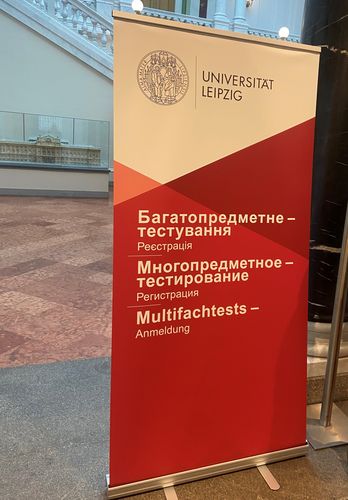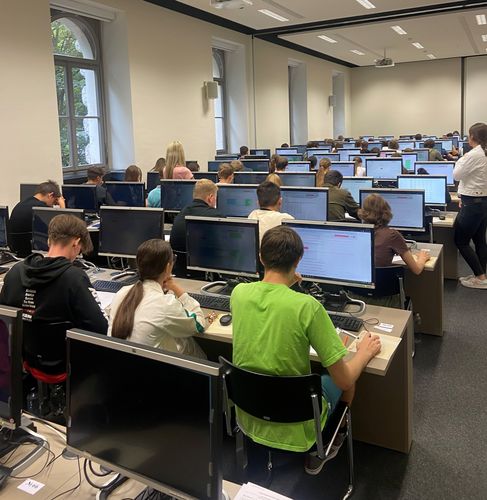In specially set up temporary examination centres, Ukrainian-speaking teachers who have been trained by Ukrainian experts will conduct the exams. Starting on 3 June, around 60 refugees will take the online tests over several days. The process at the University is being coordinated by the Vice-Rector for Talent Development, Professor Roger Gläser, and test manager Kateryna Fabrychna.
“We didn’t hesitate to get the team together again this year to support the initiative. The National Multi-Subject Tests are not only a way for us to help refugee Ukrainian pupils gain a higher education entrance qualification, but also to provide them with their first information about Leipzig University as an attractive place to study,” says Vice-Rector Gläser. The Ukrainian ministries and authorities had previously requested that the tests be held as virtual examinations on the premises of German universities. With last year’s positive experience and the team in place to ensure that this year’s exams run smoothly, Leipzig University can guarantee that the exams will be completed quickly and in compliance with the rules.
Passing the NMT qualifies the candidate for higher education in Ukraine. However, there are also other subject tests that qualify students for a degree programme. Many pupils then decide to study in Ukraine (online). In Germany, they can apply for the Studienkolleg with their school-leaving certificate (if they have not already spent a year studying in Ukraine), as they have an ‘indirect’ higher education entrance qualification. The International Centre provides advice on the application and admission procedure. The Studienkolleg Sachsen at Leipzig University is also a trusted partner: in 2023, the first participants in the additional language courses for students who had fled Ukraine were able to take the “Deutsche Sprachprüfung für den Hochschulzugang” (DSH) at Leipzig University. When the war against Ukraine began, Leipzig University’s Rectorate decided to offer additional preparatory language courses for students who had fled Ukraine.































































